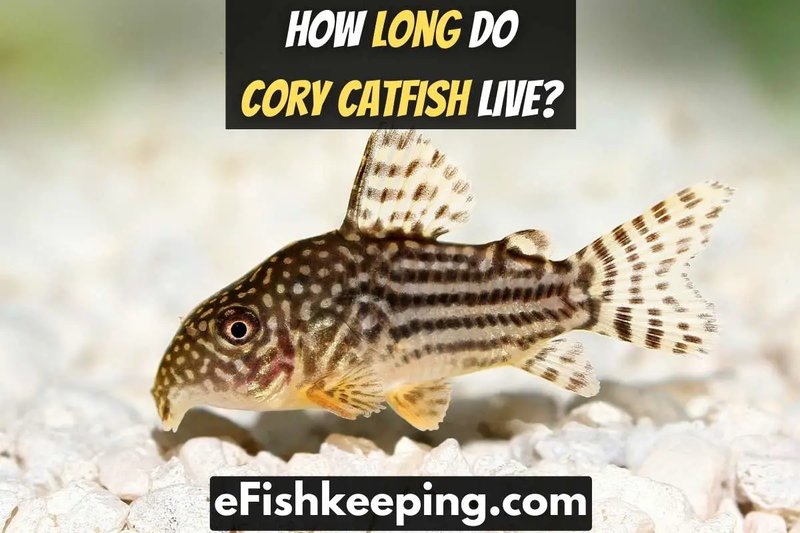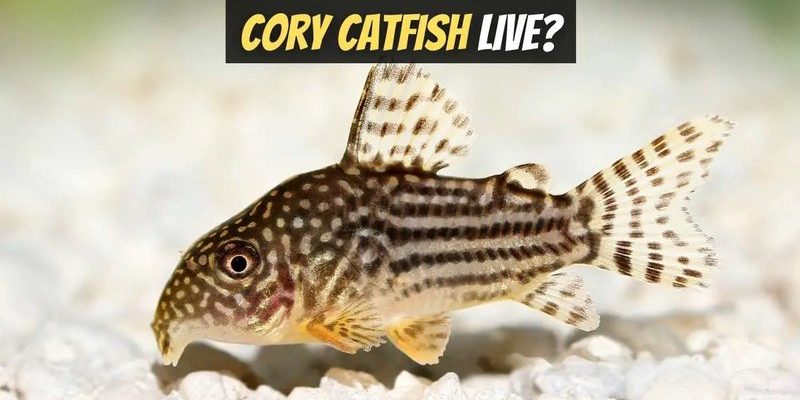
Think of it like this: just like you wouldn’t buy a pet without knowing how long it could be part of your family, you want to understand the lifespan of your future fishy friends. In the cozy confines of a home aquarium, Corydoras catfish can live significantly longer than they do in the wild, thanks to the care and controlled conditions you provide. So, let’s explore their lifespan, what factors influence it, and how you can help your Corydoras thrive.
Understanding Corydoras Catfish Lifespan
When it comes to Corydoras catfish, you can generally expect them to live between 5 to 10 years in captivity. Isn’t that impressive? Considering their small size and peaceful demeanor, they can be quite the long-term companions. Most aquarists report that these little guys tend to average around seven years but can sometimes stretch their longevity with the right care. Just like people, individual fish can have different lifespans based on various factors.
You might be asking, why such a range? Well, the lifespan of Corydoras can vary based on several things: the species of Corydoras, the conditions in which they live, and the care they receive. Some species, like the Corydoras aeneus, are hardier and may live longer, while others might have slightly shorter lifespans. The key here is to understand how to create the best possible environment for them.
Factors Influencing Lifespan
Multiple factors play a significant role in determining how long Corydoras catfish can live, and knowing these can help you take better care of them. Here are some of the most important:
- Water Quality: Clean, well-maintained water is crucial for the health of your fish. Regularly check parameters like pH, ammonia, nitrites, and nitrates to ensure a happy environment. Poor water conditions can lead to stress and even disease, dramatically shortening their lifespan.
- Diet: Feeding your Corydoras a balanced and varied diet will keep them healthy and help them thrive. High-quality sinking pellets, along with occasional treats like frozen foods or blanched veggies, can provide the right nutrition.
- Tank Mates: Corydoras are social creatures and do best in groups. Keeping them with appropriate tank mates can reduce stress and promote a lively environment. Avoid aggressive fish that might bully them, as stress can lead to shorter lifespans.
- Tank Size: Ensure that your fish have enough space to swim around comfortably. A minimum of 10 gallons is typically recommended for a small group of Corydoras, and larger tanks provide even better conditions.
So, here’s the thing: if you provide an ideal habitat, you have a much better chance of seeing your Corydoras thrive for years to come!
Common Health Issues and Their Impact
Every fish owner needs to be aware of potential health issues that can affect Corydoras. The healthier your fish, the longer they’re likely to live. Here are some health concerns that can impact their lifespan:
- Ich (White Spot Disease): This is a common issue that manifests as white spots on your fish. It can be treated, but if ignored, it can be lethal. Early detection is key!
- Swim Bladder Issues: If your Corydoras struggles to swim or stays near the bottom, it may be suffering from a swim bladder problem. This could indicate water quality issues or a poor diet.
- Fungal and Bacterial Infections: These can arise from stress or poor water quality. Keeping your tank clean and your fish stress-free is essential for prevention.
Remember, monitoring your Corydoras regularly can help catch these issues before they become serious. A little diligence can go a long way toward extending their lifespan.
How to Provide the Best Care
Now that you know what can influence their lifespan, let’s explore some practical ways to give your Corydoras the best life possible:
1. Regular Water Changes: Aim for at least a 25% water change every couple of weeks. This helps remove toxins and maintain water quality.
2. Choose Quality Food: Invest in high-quality sinking pellets or tablets specifically designed for bottom feeders. Variety is the spice of life, so mix in some frozen or live food occasionally!
3. Create a Comfortable Habitat: Use fine sand or smooth gravel as substrate. Corydoras love to rummage around in the substrate, and sharp edges can hurt their delicate bodies.
4. Maintain a Stable Temperature: Corydoras prefer a temperature range between 72°F and 78°F (22°C – 26°C), so make sure to use a reliable heater.
By following these tips, you’re laying the groundwork for a long, happy life for your Corydoras.
Comparing Lifespans in the Wild vs. Captivity
It’s fascinating to see how different environments affect the lifespan of Corydoras. In the wild, these fish often face challenges such as predators, fluctuating water conditions, and food scarcity. These factors can lead to a much shorter lifespan, commonly around 3 to 5 years.
In contrast, in captivity, they can typically live 5 to 10 years or even longer when well cared for. This drastic difference highlights how much we can influence their quality of life. You really become their protector, providing a safe haven where they can thrive without those dangers lurking around.
You might be thinking, “Why should I care?” Well, the longer your Corydoras live, the more you get to enjoy their quirky behaviors and charming little personalities!
In summary, if you’re looking to add Corydoras catfish to your aquarium, knowing their lifespan can help you plan for the future. Typically ranging from 5 to 10 years, these little fish can become long-term companions with proper care. By focusing on factors like water quality, diet, and social environment, you can help ensure that your Corydoras thrive and add joy to your aquatic life.
So, are you ready to fill your tank with these lively little swimmers? With a little love and attention, your Corydoras can be happy, healthy, and a part of your life for many years to come!

